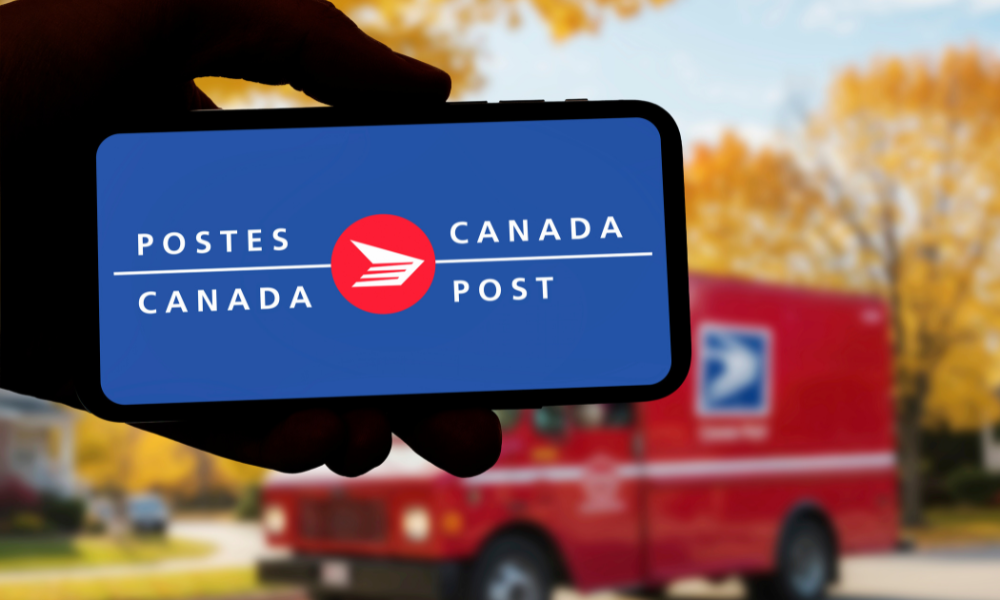Union alleges unfair tactics as complaint cites direct outreach, demands halt and compensation

The Canadian Union of Postal Workers (CUPW) has filed an unfair labour practice complaint alleging that Canada Post attempted to bypass its bargaining rights by directly communicating with employees about contract terms.
According to reporting by The Globe and Mail, the union claims the postal service tried to sway employees through direct outreach, which CUPW argues undermines its exclusive role in representing members.
As per a bulletin from union lead negotiator Lana Smidt, the union has asked the Canada Industrial Relations Board (CIRB) to stop what it called interference, allow it to rebut employer messaging, and order damages.
The complaint cited employer use of “captive audience meetings, videos, press releases, documents,” and digital alerts through post office terminals—along with the release of updates shortly after informing the union.
CUPW further alleged that some materials featured “alarmist comments” and “misinformation.”
Canada Post rejected the allegations “in their entirety,” according to a statement to CTV News.
Spokes person Lisa Liu stated that “Canada Post places a great importance on keeping employees informed,” and that it has only provided “accurate, neutral and factual information.”
The corporation added that the Canada Labour Code permits employers to express views and communicate with employees during collective bargaining.
The labour dispute, now in its 19th month, centres on the staffing structure of Canada Post.
According to The Globe and Mail, while the parties have made progress on wages since negotiations began in November 2023, they remain at odds over future workforce composition.
Canada Post has proposed increasing part-time positions to reduce costs, arguing it can no longer sustain the current full-time staffing model amid mounting financial pressure and increased competition in parcel delivery.
As reported by The Globe and Mail, Canada Post’s final offer included part-time roles with health and pension benefits, with weekly hours guaranteed between 15 and 40. The union has not yet responded to this proposal.
A May report by a federal commission recommended allowing the use of more part-time workers to help the postal service remain competitive, particularly against flexible contractors used by private delivery firms.
The commission’s findings echoed sentiments voiced by commissioner William Kaplan, who stated that continuing under the current collective agreement could lead to bankruptcy.
Canada Post has already borrowed $1bn from the federal government to manage $500m in bond repayments due this July.
Spokes person Jon Hamilton told The Globe and Mail that a 32-day strike during the 2024 holiday season cost the company approximately $200m.
Since the union issued a strike notice on May 20, parcel volumes have fallen by nearly two-thirds.
Hamilton added that the company’s largest parcel facility in Scarborough is now operating at an average of only five hours per day.
“We are fully staffed and fully operational, but we are running on fumes because customers have taken their business elsewhere,” he said.
According to City News, CUPW also expressed concern that Canada Post was soliciting online feedback on its proposals and updating offers based on that feedback, further undermining the union’s role.
The complaint cited a CIRB precedent stating that employers must not make “inappropriate selling pitches to employees over the head of the union.”
Internal tensions have also emerged.
CUPW acknowledged in its CIRB filing that some of its efforts have shifted from bargaining toward reassuring local leadership and members amid what it described as “a loss of confidence” due to Canada Post’s direct engagement campaign.
According to BNN Bloomberg, CUPW and Canada Post returned to the bargaining table following a request by Jobs and Families Minister Patty Hajdu, who encouraged both parties to negotiate “with the aid of federal mediators.”
The union said it would resume talks “in good faith,” and expects Canada Post “to do the same.”
Despite this, the parties remain far apart on how to move forward.
CUPW has pushed for binding arbitration to resolve the dispute, a move rejected by Canada Post as “long and complicated.”
Instead, Canada Post has asked the federal minister to order a vote on its final offer.
According to CUPW, a forced vote “is an attack on the most basic rights of trade unions to represent their members.”
Canada Post countered that allowing employees to vote ensures workers have a voice and helps restore stability.
Experts say the impasse may persist.
Stephanie Ross, labour studies professor at McMaster University, told The Globe and Mail that the conflict now centres on “who has the power to force the other side to cave.”
University of Manitoba assistant professor Adam King added that arbitration may not help CUPW’s case, as third parties typically favour status quo solutions in qualitative disputes like staffing models.
Ross warned that if neither side changes its position, the dispute “could very well become one of the longest in Canadian labour history.”



